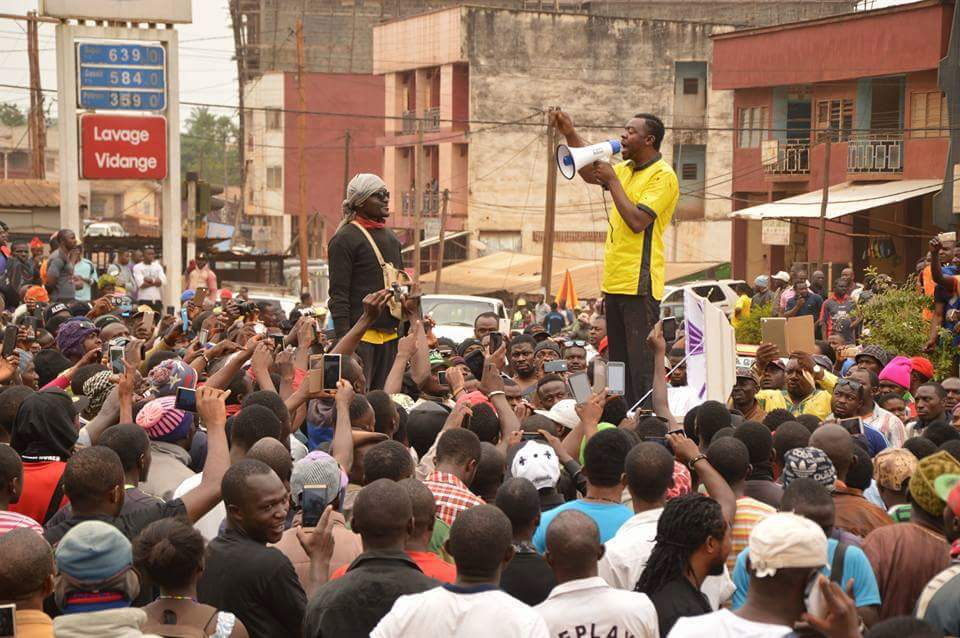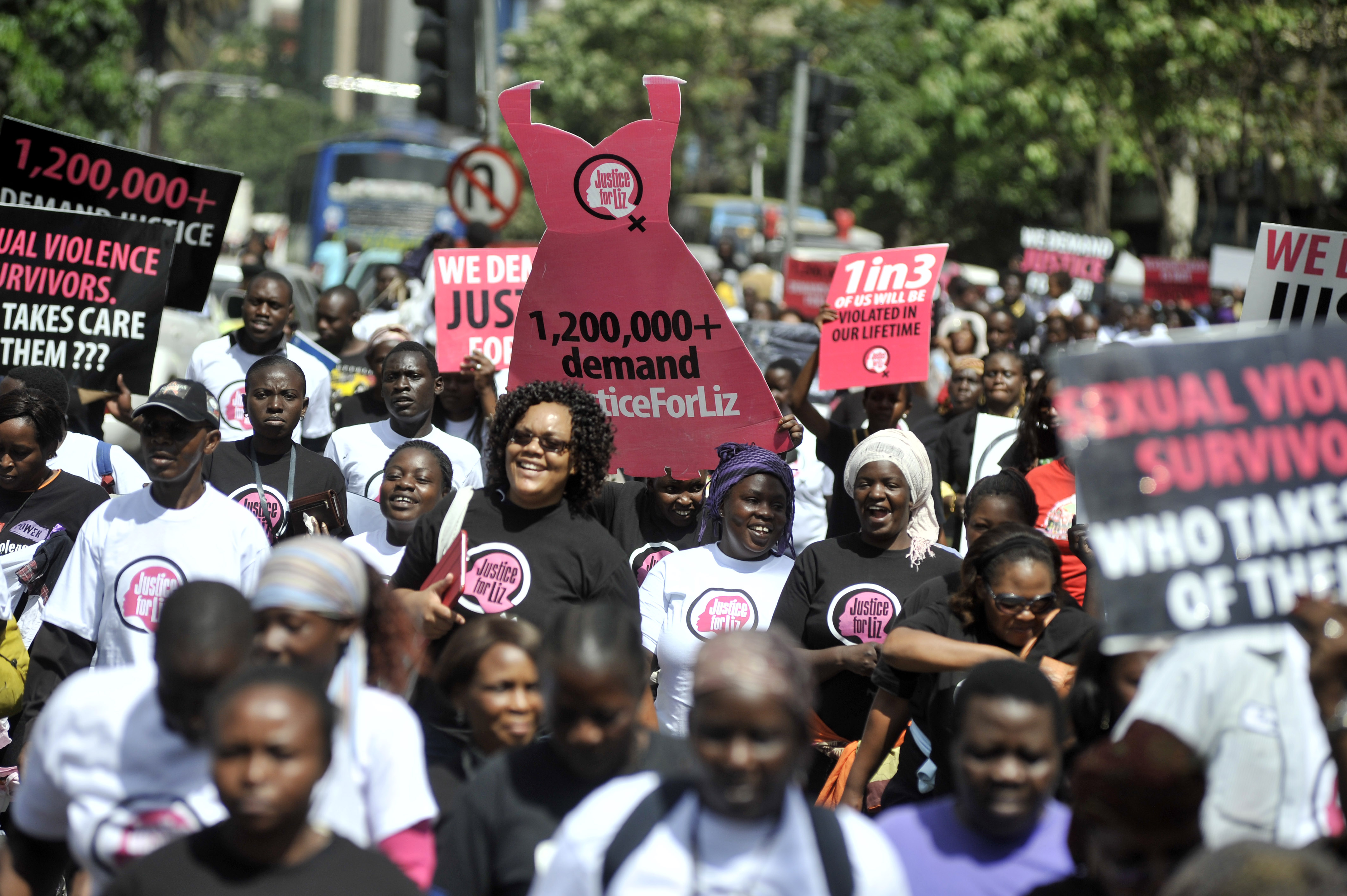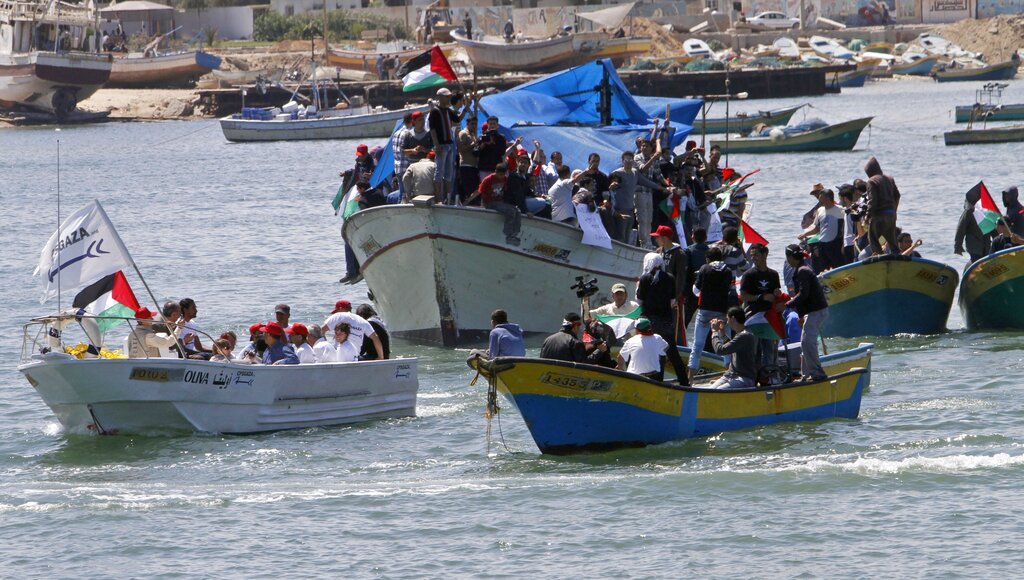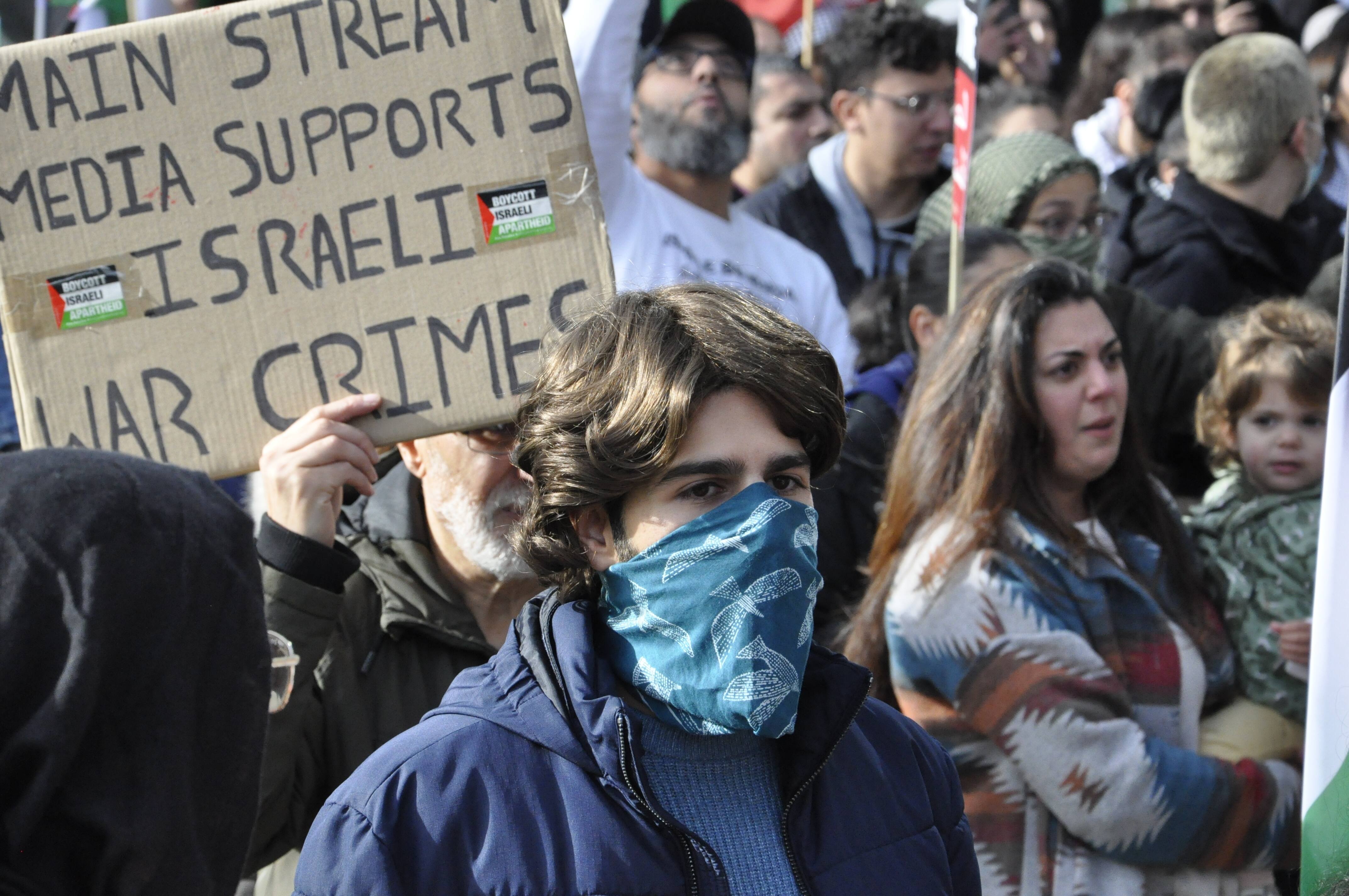"لم آتكم بذهب ولا بفضة، جئتكم بالحرية".. بهذه العبارة قطع الرئيس التشادي إدريس ديبي أمام شعبه وعدا بالانفتاح في أول بيان غداة توليه السلطة في غرة ديسمبر/كانون الأول 1990 بعد فرار سلفه حسين حبري عقب معارك ضارية بينهما.
هبّت رياح الحرية واتسعت الساحة الإعلامية منذ أكثر من 20 عاما مضت، وظهرت أعداد كبيرة من الصحف، ولكن سرعان ما بدأت تتقلص مساحة الحرية شيئا فشيئا في السنوات الأخيرة. بدأت الصحافة تتراجع في أداء دورها، إذ تحولت إلى أداة لتلميع صورة النظام، وبدأت موجة المضايقات تلاحق الصحفيين وكتاب الرأي من وقت لآخر.
اختار الصحفي فرانك كودباي اللجوء إلى سويسرا حماية لنفسه بمساعدة من منظمة "مراسلون بلا حدود" في إطار برنامج الصحفيين في المنفى، وذلك بعد تعرضه لعدة تهديدات بالقتل والاعتقال على خلفية القيام بمهامه.
لم يتوقف الأمر عند كودباي فقط، بل إن الكثير من الصحفيين عاشوا مضايقات في سبيل القيام بواجبهم المهني.
حتى هذا الوقت، ما تزال الصحافة تعيش أياما سوداء، حيث تسود سياسات القمع والترهيب، وبيان ذلك أن التقرير السنوي لمنظمة "مراسلون بلا حدود" أشار إلى أنه "ليس جيدا أن تكون صحفيا في تشاد، فلا يسمح بإجراء تحقيقات ونشر مقالات تتناول إخفاقات الحكومة، حيث يتم اعتقال الصحفيين بانتظام".
واستعرض التقرير حالات عدد من الصحفيين الذين تعرضوا لمضايقات الحكومة. ووفقا لنفس المنظمة فإنه "في 23 سبتمبر/أيلول من العام الماضي حُكم على الصحفي مارتن إينو من صحيفة "سلام إنفو" بالسجن لمدة عام وغرامة قدرها 3140 يورو، فضلا عن تعويضات بقيمة 31.4 ألف يورو يسددها مع زملائه المتابعين بتهمة التشهير قبل إدانتهم في نهاية المطاف "بالتآمر الجنائي" بناء على صك اتهام من وزير الصحة السابق حول مقالات تزعم الإساءة الجنسية من ابنة أخته القاصر.
تراجع الحريات العامة في التشاد يعكسه بشكل جلي انحدار البلد إلى المرتبة 122 من أصل 180 دولة في تصنيف الحريات الصحفية لمنظمة "مراسلون بلاد حدود" ضمن تقريرها للعام 2019.
يوم بلا صحافة
في خضم الظروف التي تعيشها الصحافة، أطلق اتحاد الصحفيين التشاديين يوم 21 فبراير/شباط 2018 نداء بوقف بث الإذاعات الخاصة والمطبوعات احتجاجا على سياسات الحكومة القمعية ضد الصحفيين أثناء تأدية مهامهم.
ومنذ ذلك الوقت، أمرت الحكومة بحجب شبكات التواصل الاجتماعي التي رفع الحظر عنها قبل أشهر قليلة، لكن سرعان ما بدأ مسلسل الاعتقالات من جديد.
هذا الجو المطبوع بتراجع الحريات، يقول عنه رئيس رابطة الصحفيين التشاديين آدم علي آدم في تصريح لمجلة الصحافة إن "الحديث عن واقع الصحافة التشادية يجرنا بالضرورة إلى الحديث عن حرية التعبير في العمل الصحفي في تشاد، ورغم ارتباط حرية التعبير بالدستور في المادة (23) فإن واقع الحال يختلف كثيرا عما هو منصوص عليه".
فالحرية الصحفية في رأي آدم، ارتبطت في عقلية من هم في هرم السلطة بمعادلة المعارضة والموالاة، "وهذا يرجع في رأيي إلى سوء فهم للحريات نفسها من القائمين على الأمر، إذ تُصنَّف الصحافة الحرة اليوم بأنها معارضة حتى يثبت العكس، ولا يمكننا نكران أن هناك هامش حريات ضئيلا يضيق ويتسع حسب حجم وتأثير الوسيلة الإعلامية، فكلما كان تأثير الوسيلة أكبر يُشدد عليها الخناق أكثر من الدولة، والعكس صحيح. وبما أن غالبية الصحافة التشادية الحرة ضعيفة الإمكانيات -أدوات ومضمونا- فإن تأثيرها على الرأي العام يظل ضعيفا أو محدودا. وعلى هذا الأساس، تركت لها الدولة هذا الهامش لتتحرك فيه على قاعدة: القافلة تسير والكلاب تنبح".
ومع ذلك، فإن عيون الدولة الرقابية مسلطة على الصحافة والحريات إذا ما تجاوزت الخطوط الحمراء التي وضعتها الوكالة الوطنية للأمن، فالخطورة على الصحفيين والعمل الصحفي في تشاد ما تزال قائمة، وتمارس ضدهم كل أنواع الاضطهاد والتكميم. وفي كل عام نلحظ إما إقفال مؤسسة أو إنذار أخرى أو اعتقال صحفي أو اختفاء آخر، وهكذا دواليك. وما زالت بلادنا تحتل اللون الأحمر (رمز الخطر) في كل مؤشرات قياس الحريات العامة والصحفية في العالم.
من جانب آخر، فإن الصحفي التشادي نفسه بحاجة إلى التطوير الذاتي فيما يتعلق بمعرفة حقوقه وتأهيل نفسه لمعرفة مهامه الأساسية، إذ إن الصحافة -خصوصا الحرة- مسؤولية قبل أن تكون مهنة لكسب الرزق، فلا بد للصحفي أن يدرك أن دوره الأساسي هو مراقبة عمل الحكومة، وتوعية للمواطن البسيط.
وفي هذا السياق، يعتبر الخبير القانوني العابد مصطفى أن "حرية الصحافة مثل تداول السلطة، مقرَّرة قانونا وسراب في الواقع. ولكن هناك مساحة وهامش لا بأس به من حرية الرأي عندنا غير موجود في كثير من البلدان".
وبحسب مصطفى فإن "معظم الصحفيين التشاديين تحولوا إلى عيون تابعة للخارج وتروج للداعمين له بغض النظر عن المصلحة الوطنية".
"صيادو الصحافة"
أما عن واقع مهنة الصحافة، فإن غالبية من يزاولونها اليوم ركبوا الموجة بمحض الصدفة، حيث أجبرتهم الظروف المعيشية على ذلك، الأمر الذي ساهم في ظهور صحافة هجينة أصبحت رفيقة الأزمات.
هكذا وجد أحمد -مثلا- نفسه، عندما فشل في اجتياز شهادة الثانوية العامة رغم محاولاته المتكررة، فهو لا يفقه حرفا من قواعد الصحافة، لتنطبق عليه مقولة "كأنك يا أبا زيد ما غزيت".
يقول الصحفي حبيب أبرص في مقاله [2] "صيادو الصحافة" إن الساحة الإعلامية امتلأت بأشخاص يجهلون ضوابط العمل، يقتنصون فرص المناسبات لا الأحداث، همهم الارتزاق قبل كل شيء. ويشير إلى وجود من هم أخطر من ذلك، معتبرا أنهم "يعملون بصمت خلف الكواليس باعتبارهم رؤساء أقسام، لكن في الواقع لا علاقة لهم بالمهنة إطلاقا، بعضهم دخلها بعد الفشل في التعليم، حتى إنه يجهل أدنى قواعد اللغة". وتابع قائلا: "لو كنتُ مكانه لقدمت استقالتي على الفور وعدتُ إلى مقاعد الدراسة".
وأكد العابد مصطفى في حديثه مع مجلة "الصحافة" أن "معظم صحفيينا هواة، وفوق ذلك هي مهنة تمارَس من أجل المردود المادي، لذا، لا توجد تغطية مجانية، وصحافتنا لا تعرف السبق الصحفي، وبالتالي ترى في الإعلام الرسمي الأنبوب الرئيسي لنقل المعلومة"، معتبرا أن "نهج الاسترزاق الذي يمارسه بعض ممتهني الصحافة يجعلهم رهن إرادات من يدفع أكثر، وتأثير ذلك واضح، بحيث يتم تجيير من يدفع أكثر وإعطاء الأولوية للأقل أهمية بدل المهم".
صحافة خاوية
لم تعد للصحافة التشادية القدرة على صناعة محتوى عميق يلامس احتياجات الجمهور، حيث ظلت رهينة المال الفاسد، وبارونات السياسة، ولا تحرك ساكنا إلا إذا تعلق الأمر بأخبار ذوي الجاه والنفوذ.
مستشار وزير الإعلام عبد الله عيسى محمد يرى أن الصحافة التشادية تتمتع بمساحة من الحرية، مستدلا بوجود أكثر من 30 صحيفة في الساحة حاليا، معظمها أسبوعية عدا صحيفتي "لوبروغري" (LE PROGRES) اليومية و"نجمينا بيهاب" (N'djamena-Biheb) النصف أسبوعية، وهما تصدران بالفرنسية. أما أشهر الصحف العربية، فنجد صحيفة "إنجمينا الجديدة" التي تأسست في سبتمبر/أيلول 2006 وما زالت تواصل عطاءها بحنكة ودراية صحفية، وعالجت موضوعات عديدة طرأت على المحيط التشادي. وبجانبها صحيفتا "الأيام" و"الأضواء". وهناك صحف أخرى تصدر باللغة العربية إلا أنها غير منتظمة الصدور لظروف خاصة بها.
وأقر عيسى بأن الرقابة "تقلل من الوظيفة الإقناعية للصحافة، ومن ثم تعمد إلى إفراغها من أي مضمون ثقافي أو فكري. ولكي تغدو الصحافة فاعلة في تشكيل اتجاهات الأفراد، ينبغي أن تتمتع بقدر من الحرية في انتقاء موضوعاتها، وكذلك الحرية في معالجة هذه الموضوعات في سياق أيدولوجي معين".
لعل وجود صحيفتي "الحارس" (Abba Garde) و"أنجمينا الجديدة" عكس صورة مختلفة للعمل الصحفي، وكسر الروتين الذي اعتادت عليه الصحافة في تشاد، فمنذ نشأتها عام 2006 -على يد الراحل المقيم آدم عبد الله- طرحت "أنجمينا الجديدة" العديد من المواضيع التي اتسمت بالجرأة، وتطرقت لقضايا الفساد الإداري والمال العام، إلا أن العاملين فيها لم يسلموا من مضايقات النظام وحتى المحاكمات، كما حدث في قضية تسريبات "ويكيليكس".
الصحافة الرقمية
كان الجمهور في وقت سابق ينتظر بفارغ الصبر ما ستكتبه الصحف أو يذيعه الراديو وتبثه المحطات التلفزيونية عن أحداث اليوم، بيد أن هذه الوسائل كلها أصبحت حاليا تنتظر ما سيقوله الجمهور على مواقع التواصل الاجتماعي بشأن الأحداث الآنية لتتناوله في نشراتها اليومية وأقوالها الأسبوعية.
ومن هنا جاءت فكرة التحول الرقمي لتعيد خريطة الكتابة والنشر، وساعد ذلك في ظهور صحف إلكترونية عديدة، أبرزها "الوحدة إنفو" التي قدمت شكلا جديدا للعمل الصحفي عبر أدوات تقنية جديدة ومضمون مغاير، إذ تناولت قضايا حساسة بجرأة ومهنية عالية، الأمر الذي تسبب في استدعاء رئيس تحريرها عدة مرات.
أمام هذا التحول الرقمي، استطاع العديد من كتاب الرأي نشر وجهات نظرهم عبر المنصات الرقمية. لكن الأمر لم يكن بالسهولة المتوقعة، إذ تعرّض العديد من المدونين للاستدعاء والتحقيق معهم، كما تعرّض بعضهم للاعتقال وصدور أحكام قضائية بحقهم.

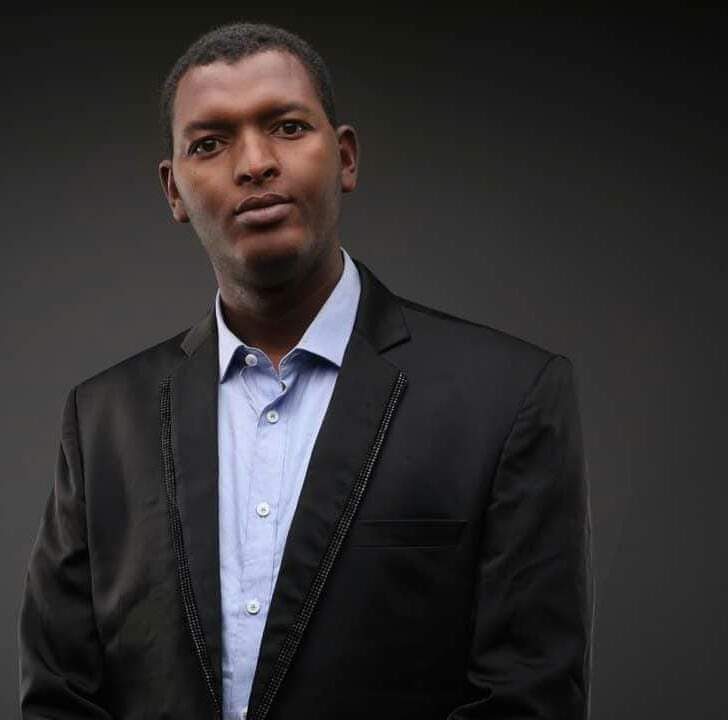
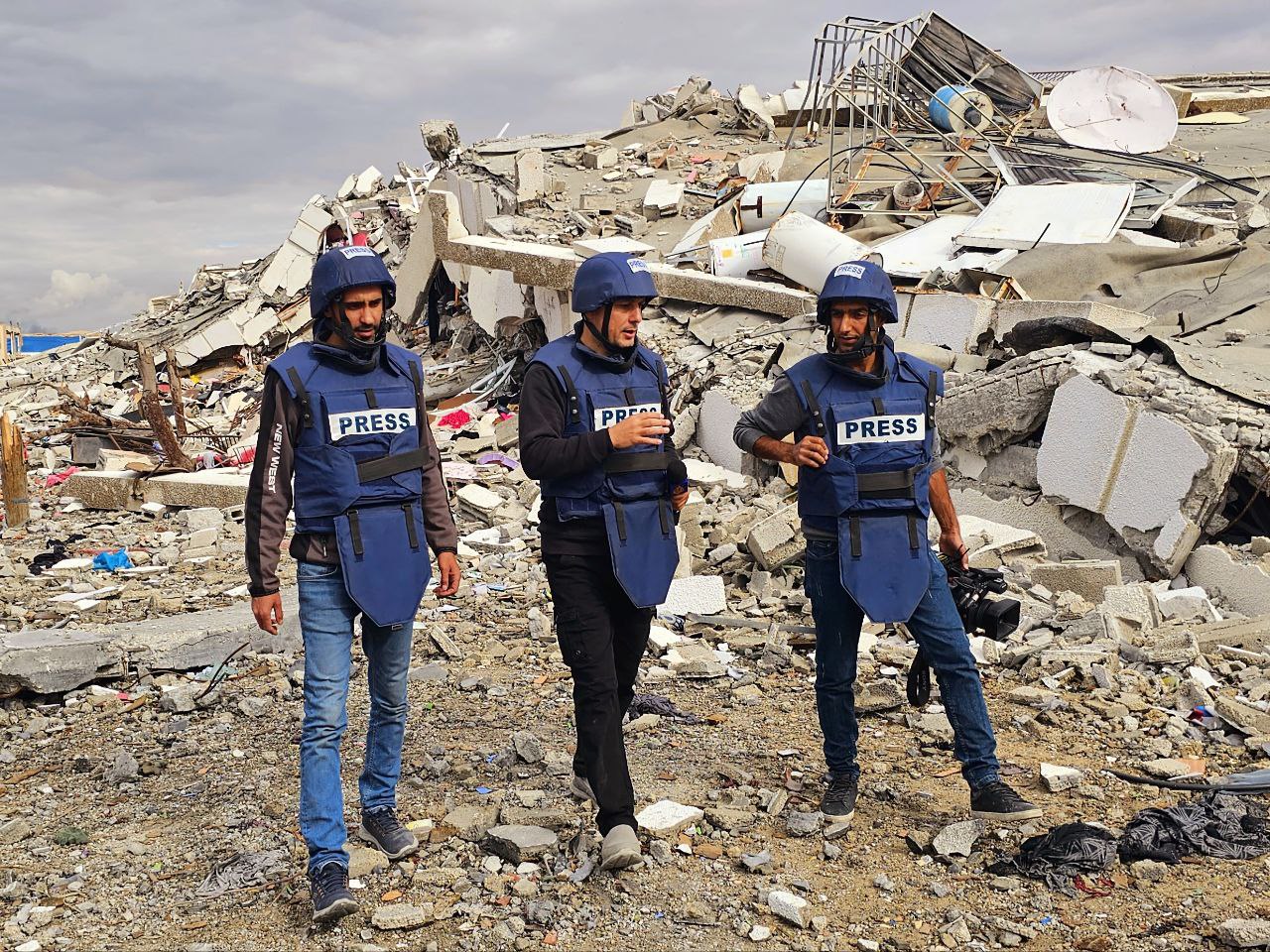

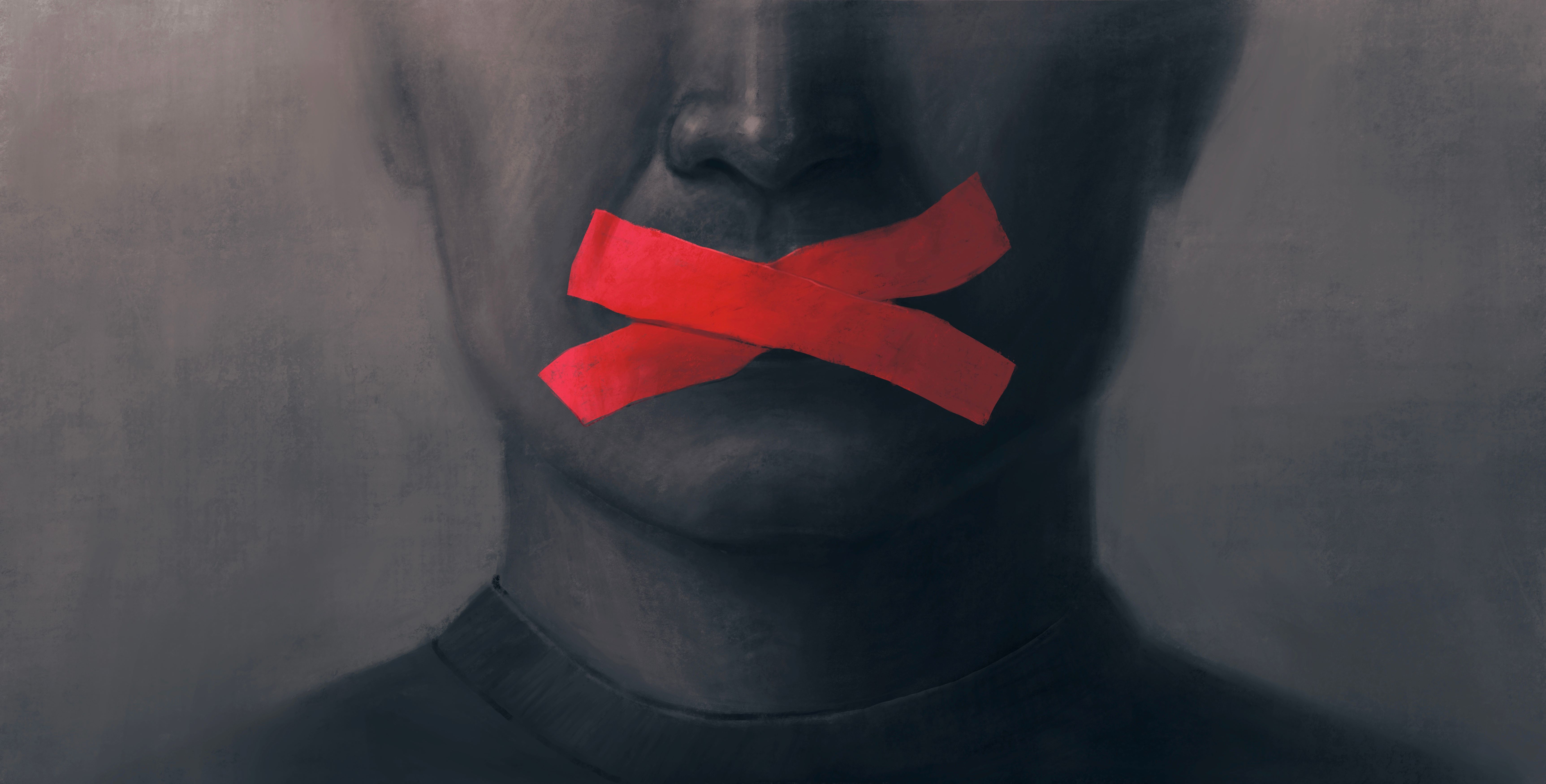



























![A demonstration against Israel's war on Gaza on Paulista Avenue in São Paulo on November 4, 2023, draws attention to the deaths of children while the media focuses on the war against terrorists. [Photo: Lina Bakr]](/sites/default/files/ajr/2024/Picture1.png)

